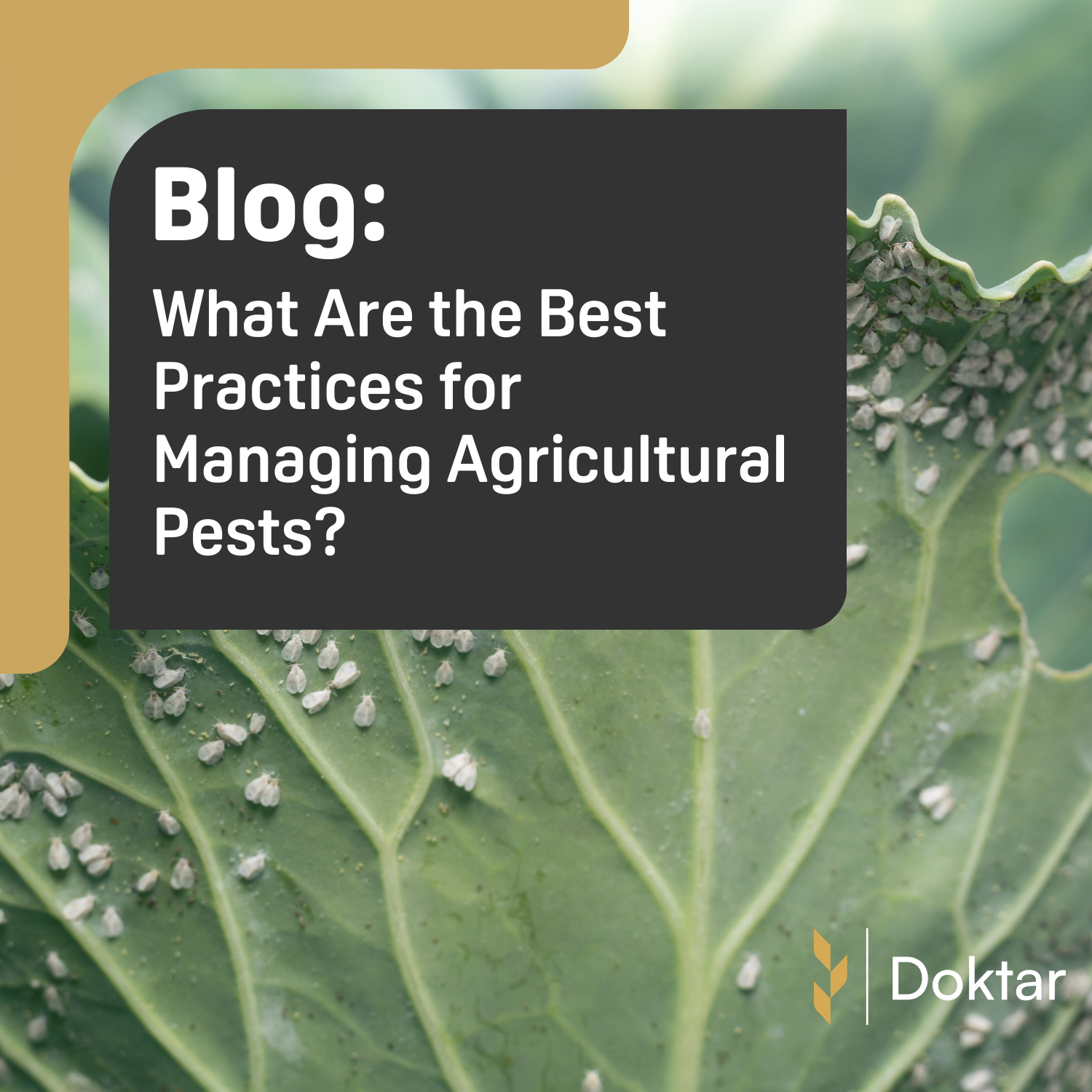

What Are the Best Practices for Managing Agricultural Pests?
Managing agricultural pests effectively is key to sustainable farming. They impact crop yields, quality, and profitability. Integrated Pest Management (IPM) and eco-friendly methods like biological control, crop rotation, and organic pesticides are essential. Tools like Doktar’s PestTrap and Filiz sensor stations enhance pest monitoring, promoting timely and informed pest control actions.
Published on 13 August 2024
Managing agricultural pests is crucial for modern farming, directly impacting crop yields, quality, and profitability. As the importance of sustainable agriculture grows, it is vital to adopt effective and environmentally friendly practices. This article will examine the most effective methods for managing agricultural pests, focusing on eco-friendly approaches that align with sustainable farming principles.
Understanding Sustainable Pest Management
Sustainable pest management entails controlling or reducing pest populations while minimizing environmental harm, human health, and non-target species. This approach incorporates various methods to manage pest populations, such as biological control, crop rotation, and non-toxic substances. Integrated Pest Management (IPM) is a comprehensive approach to sustainable pest management, integrating biological, cultural, physical, and chemical tools for pest control. IPM prioritizes prevention and uses chemical interventions only as a last resort to minimize environmental impact. Biological control is another essential component, utilizing natural predators or parasites to regulate pest populations. This approach significantly decreases the need for chemical pesticides, promoting a healthier ecosystem. Crop rotation also plays a vital role by regularly altering the types of crops cultivated in a specific field, disrupting pest life cycles, and enhancing soil health.
The Significance of Eco-Friendly Pest Control in Agriculture
Eco-friendly pest control is crucial for several reasons. Firstly, it protects the environment by reducing the harmful effects of conventional pesticides, which often result in water pollution, and eradicating beneficial insects. Secondly, it safeguards human health by minimizing pesticide residues, making crops safer for consumption. Eco-friendly practices also contribute to soil and water conservation, as methods like crop rotation and organic mulches assist in maintaining soil health and reducing water contamination. Furthermore, preserving natural predators and pollinators through eco-friendly pest management methods helps uphold biodiversity, which is essential for a resilient agricultural ecosystem.
Common Types of Agricultural Pests
The first step in effective pest management is understanding the most common agricultural pests. Pests vary depending on crop type and geographical location, but insects, weeds, fungi, and rodents are among the most widespread.
Aphids, whiteflies, and caterpillars are common culprits that can cause significant damage to crops by feeding on plant sap, leaves, and fruits, leading to reduced yields and quality. Weeds, such as crabgrass, dandelions, and pigweed, compete with crops for nutrients, water, and sunlight, compromising agricultural productivity. Fungi, including pathogens like powdery mildew and rust, can devastate crops, especially in warm and humid conditions. Rodents, such as mice and rats, not only cause extensive damage by feeding on seeds, grains, and fruits but also spread diseases that can affect both plants and humans.
How Pests Negatively Impact Crop Yield and Quality
Pests can profoundly impact agricultural productivity, leading to significant economic losses by reducing crop yields through feeding on plants, resulting in stunted growth, lower fruit sets, and decreased overall yield. For instance, plants weakened by aphids sucking sap are less able to produce flowers and fruits.
Pest damage often leads to poor-quality produce, blemished, discolored, or misshapen, less marketable fruits and vegetables. Fungal infections, particularly, can cause rotting, further diminishing the quality of the harvest. Additionally, managing pests often requires additional resources, such as labor for manual removal or the purchase of biological controls or eco-friendly pesticides, which can increase operational costs and affect the farm's profitability. Long-term soil health is also at risk, as some pests, especially soil-borne pathogens, can persist in the soil for years, making it challenging to grow healthy crops in affected areas without proper management.
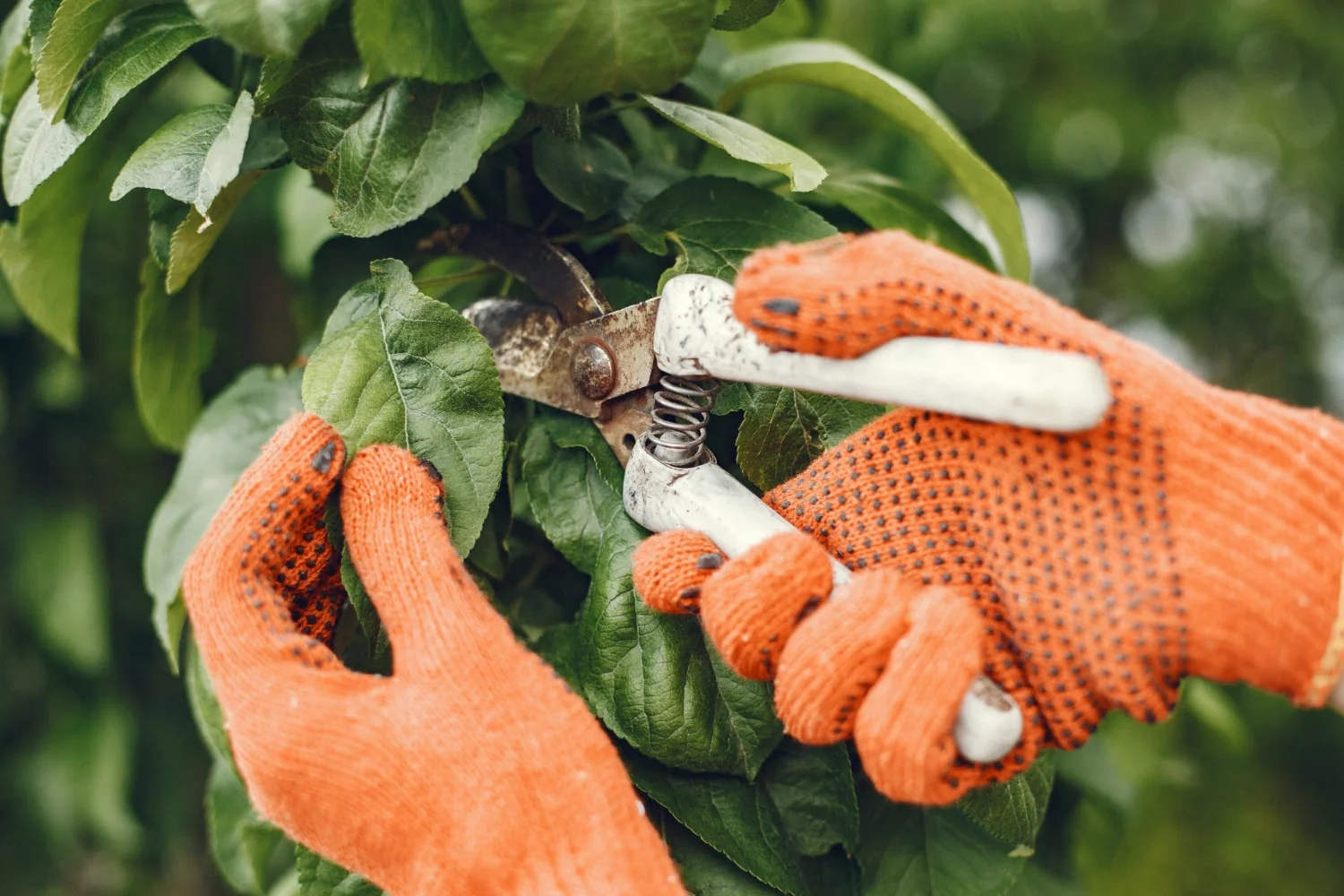
Eco-Friendly Pest Management: Recommended Approaches
Farmers can adopt several best practices to manage pests effectively in an environmentally friendly manner. Integrated Pest Management (IPM) is a crucial strategy that integrates various methods, such as biological control, cultural practices, and selective pesticide usage. IPM emphasizes long-term prevention and supports a stable ecosystem. Biological control involves introducing or promoting natural predators such as ladybugs to control aphids or parasitic wasps to target caterpillars, thereby maintaining pest populations without chemical interventions. Essential strategies also include crop rotation and diversification. Crop rotation disrupts pest and disease life cycles while planting various crops decreases the likelihood of widespread pest infestations.
Furthermore, utilizing resistant crop varieties bred to withstand attacks from specific pests can dramatically reduce the necessity for chemical controls by providing a natural defense against pests. Mechanical control, comprising physical barriers, traps, and manual pest removal, presents an additional effective approach to pest management without chemicals. For example, row covers can shield crops from insect pests, while traps can aid in monitoring and reducing pest populations. When chemical controls become necessary, choosing organic or botanical pesticides can minimize environmental impact. These products are derived from natural sources and decompose more rapidly than synthetic chemicals, reducing the risk of long-term environmental harm.
Monitoring, Early Detection, and Soil Health Management
Regular monitoring of fields for pest activity is essential for effective pest management. It allows early intervention to prevent minor infestations from escalating into major problems. Doktar's PestTrap, which provides real-time data on pest populations, offers valuable insights for farmers to take prompt and precise actions against pest infestations.
In addition to monitoring, soil health management is crucial in minimizing pest outbreaks. By adopting organic matter, maintaining proper pH levels, and preventing soil compaction, farmers can promote healthy soil conditions and reduce the risk of pest pressures.
Emphasizing Doktar's Impact on Sustainable Pest Control
Doktar is transforming the field of agricultural pest control through its innovative range of tools and services. The PestTrap digital pest monitoring station employs AI to detect and tally pests in real-time, enabling farmers to promptly and accurately address pest infestations. Integrating PestTrap with IoT devices allows farmers to oversee pest populations and minimize the financial impact of pest-related crop damage.
Doktar's Filiz agricultural sensor station furnishes real-time information on soil and weather conditions, aiding farmers in making well-informed choices regarding irrigation, disease management, and pest mitigation. Additionally, Doktar's CropMap service furnishes valuable insights into crop health, enabling proactive and sustainable pest management across expansive farming areas.
Conclusion
Effective agricultural pest control necessitates a blend of sustainable techniques, cutting-edge technology, and continual learning. By adopting environmentally friendly methods and utilizing tools like those provided by Doktar, farmers can safeguard their crops, boost yields, and contribute to a healthier environment.
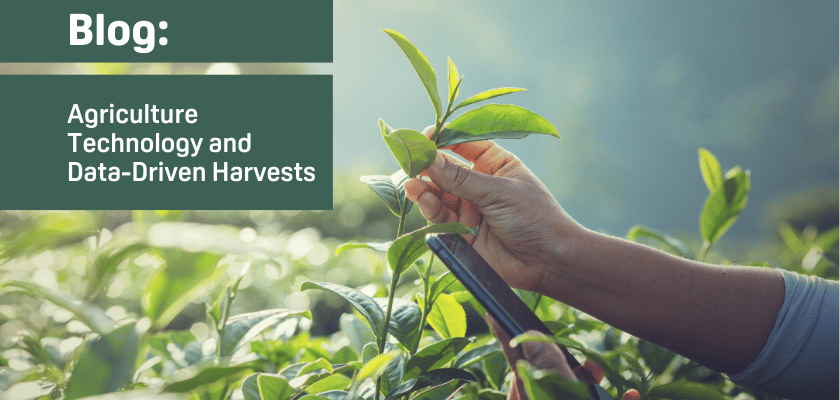
Agriculture Technology and Data-Driven Harvests
The convergence of agriculture technology and data-driven solutions represents the next frontier of innovation in farming. With companies like Doktar leading the way, farmers can leverage these advancements to improve productivity, reduce environmental impact, and secure a more sustainable future for agriculture. Whether through precision agriculture, sustainable agriculture, or cutting-edge smart agriculture technology, the future of farming is bright, and data is at the heart of this transformation. Technology's positive impact on this future should inspire and motivate us all.
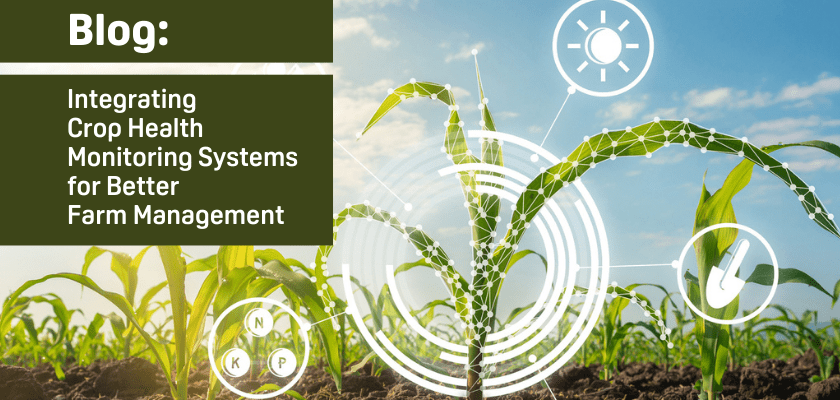
Integrating Crop Health Monitoring Systems for Better Farm Management
Crop health monitoring systems revolutionize modern agriculture by enabling real-time insights into plant health, reducing losses, and promoting sustainability. Tools like Doktar’s CropMap and Orbit integrate advanced technologies, empowering farmers with data-driven decisions. By enhancing efficiency and sustainability, these systems are essential for future-proofing agricultural operations.
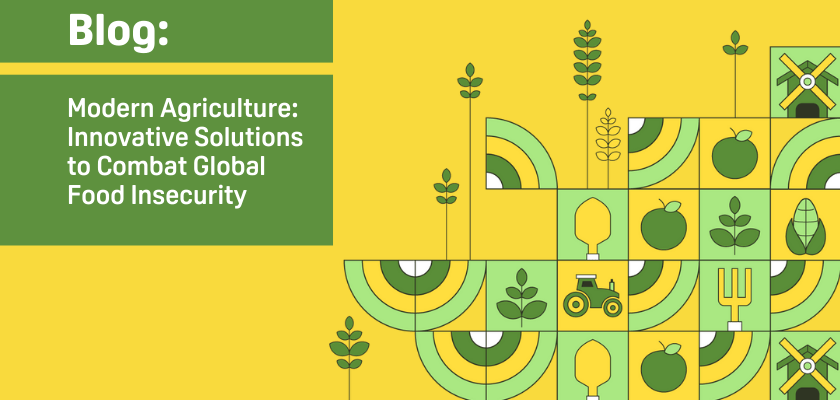
Modern Agriculture: Innovative Solutions to Combat Global Food Insecurity
Modern agriculture combats global food insecurity with precision agriculture, sustainable practices, and biotechnology. Tools like IoT, automation, and crop innovations optimize resource use, enhance resilience, and ensure stable food supplies. By integrating smart technologies, agribusinesses address challenges like climate change and resource scarcity, paving the way for a sustainable food future.
